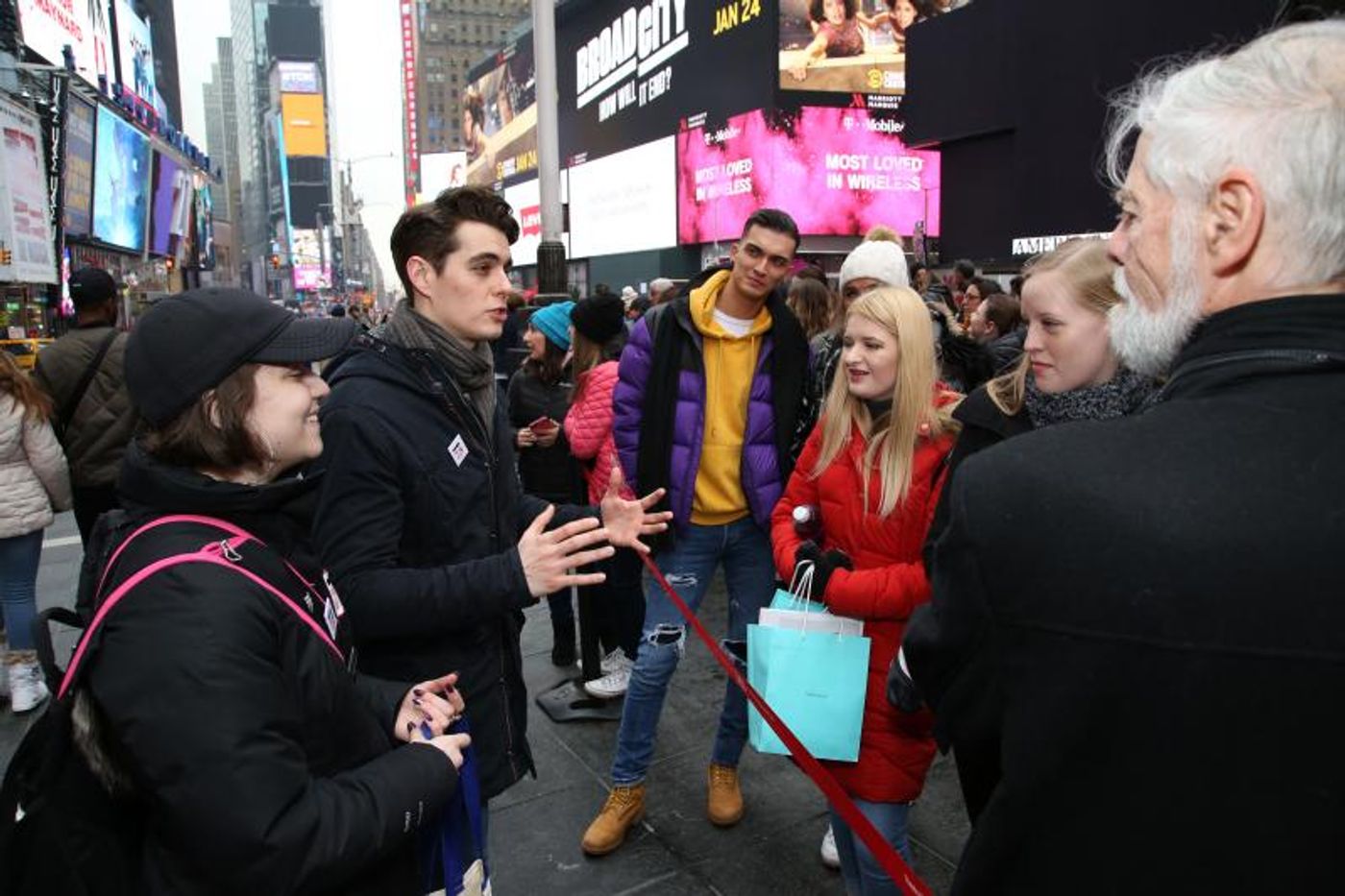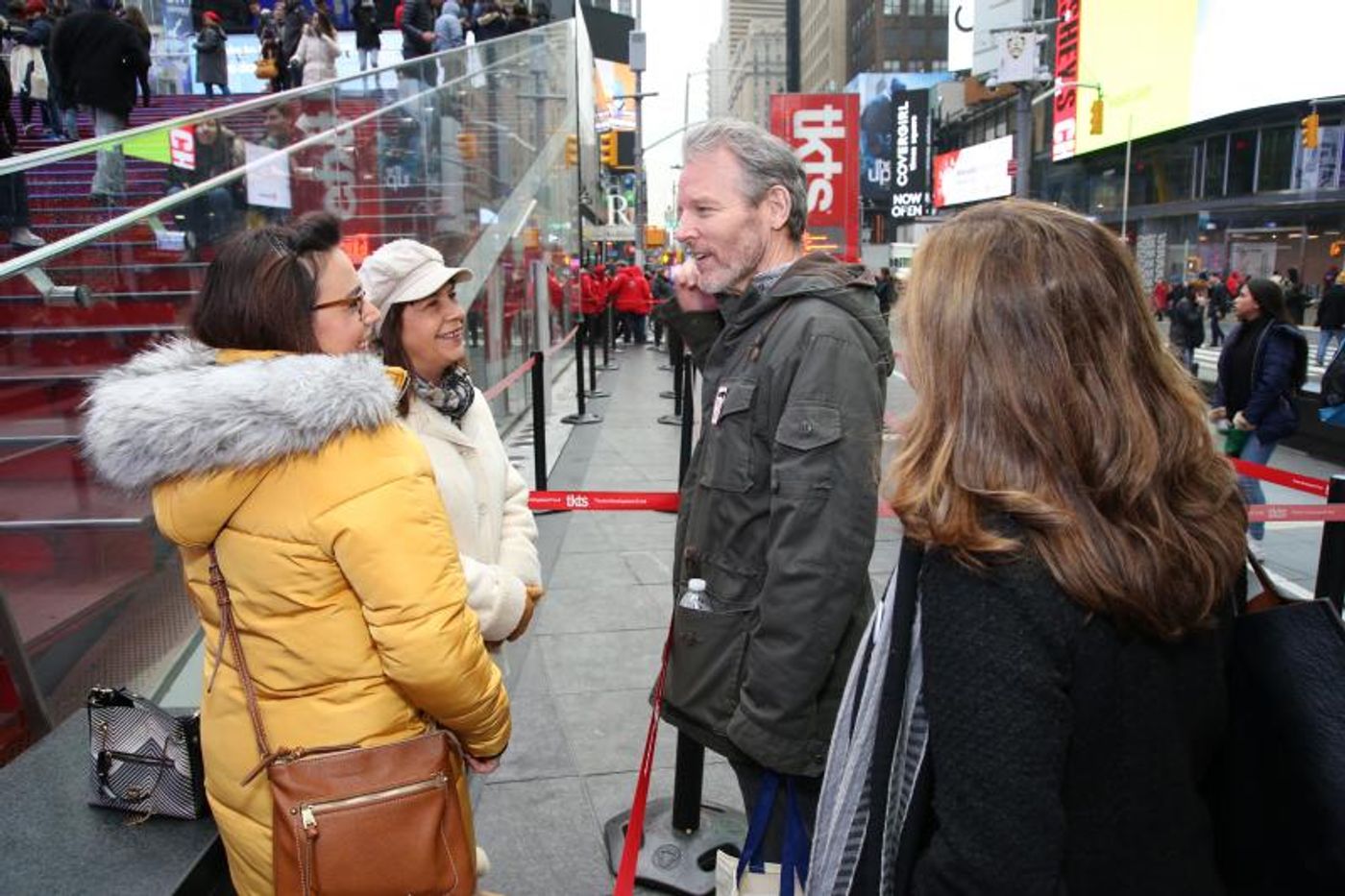Industry Editor Exclusive: The Real Results of Equity's Lab Agreement Strike
A couple of weeks ago, Actors' Equity Association ended its strike against the Broadway League related to development of new work. Most of the press regarding the strike and its termination is related to the Lab agreement--after the strike, and a #NotALabRat social media movement, Equity members will receive some profit participation for what we used to know as Labs. But there is a lot of the story that this spin misses.
It's been 11 years since the Developmental Lab agreement with the @BroadwayLeague was created. No one should be earning the same salary they were 11 years ago. Help us show them you're #NotALabRat. You're #EquityStrong - https://t.co/OXbydIkYTI pic.twitter.com/zGz8kTkpQU
- Actors' Equity (@ActorsEquity) November 13, 2018
First, "right of first refusal," a part of the Workshop contract long hated by producers, is no longer part of any development deal with the Broadway League. An Equity spokesperson said, "following dozens of meetings over two years with members who worked on show development" this was not a top priority. But it did afford actors much added security--and producers are surely happy it is not included in the new deal.
Second, the statement from Kate Shindle, President of Actors' Equity Association, read: "This new agreement amounts to a landmark moment in the evolution of commercial theatre development, ensuring that actors and stage managers will share in the success of a Broadway show when it becomes a hit." However, that is not really true. Now Equity did indeed make great strides with its new deal, but it did not ensure its members will necessarily profit share.
For there are many, many development tools that don't require profit participation. Yes, actors will now receive a pro-rata share of 1% of net profits at 110% recoupment when they participate in what we now think of as Labs or Workshops (and, in fact, some "Readings"). And it is indeed true that Labs have exploded since their introduction to the landscape in 2008--although they actually had a higher weekly pay rate than Workshops the template agreement did not include right of first refusal or royalty participation, so producers saw the use of the Lab agreement as more advantageous to them in the long term.

But even before the introduction of Labs, actors had been complaining that producers had been trying to escape profit participation. How do they do this? Well, one way was by using the Staged Readings Guidelines, which haven't changed in years. This is a way for actors to work without a contract. In theory, books are in hand, there is no choreography. It used to be that producers supposedly weren't allowed to solicit backers during these, but that has long gone by the wayside. According to the guidelines: "Actors may participate for a maximum of 29 hours for rehearsals and actual Reading(s), such times to be at the Actor's convenience. Each Equity Actor must receive reimbursement of travel and other expenses. Should the combined rehearsal/Reading hours for the Reading extend beyond 29 then the production must be placed on a Staged Reading Contract, or other appropriate Equity Agreement, in order for members to continue participation." Actors are often paid just $100 for these non-contract readings, which were used more frequently than a reading under the Staged Reading Contract.
The Staged Reading Contract, which also had no clause for profit participation, was augmented as part of this new deal between Equity and the League. You see, what we now know as Staged Reading Contracts, Labs and Workshops were replaced by "developmental work session" tiers. Tier 1 and 2, which both can be used for readings up to 2 weeks in duration, are variations on the current Staged Reading Contracts. The minimum even for Tier 1 is $550 per week, which is up from the prior $500 per week that existed under the prior deal. Tier 1 has no choreography; Tier 2, which comes with $900 and possible profit participation if there are repeated readings, includes the option of choreography.
Only Tier 3, which has a compensation of $1,250 per week, necessarily is accompanied by profit participation at 110% recoupment. This profit participation will last for 10 years. A Tier 3 developmental production can last from 2-8 weeks. The $1,250 weekly salary is up from $1000 per week under the old Lab agreement. There are also raises built into the agreement.
In addition to the use of Readings, which are limited in utility, producers have found other ways to get around contract restrictions. If the show is developed at a non-profit, what may appear as Tier 3 Lab/Workshop is actually not, as, even if the show has commercial producers behind it, developmental work usually falls under an agreement with the non-profit, not the Broadway League member. Those concerts of new shows at 54 Below and other locations, which often feature an audience full of potential backers, also need not adhere to these new restrictions.
Some producers spoken to were happy about this new deal. One said: "The investors cannot begrudge $10,000 out of million dollar payout going back to the originating actors and others who help build the foundation for the show's success." Another said: "I've always thought when a show is a hit, we should pay back to the others who got us there." (Note that not covered in these discussions is added compensation for actors who shape the show during Broadway rehearsals but were not involved in a show's development.)

Still others were not so charitable. "People wonder why we'd care if the show is a hit," one said. "It is because investors are being paid back for all their investments in flops. Actors aren't harmed by shows that lose money, investors are. The reward for hits needs to be great."
Actors spoken to were mostly pleased, very few complained that the deal did not go far enough. In addition to profit participation and higher weekly salaries, the new deal also includes additional stage manager contracts and added protections around rehearsal time. While the royalty participation present in the old Workshop agreement might be more advantageous than the new hit show 1%, the Workshop agreement was so rarely utilized basically no actor spoken to cared.
And those asked--across all spectrums--were thrilled that everyone is able to get back to work. The Huey Lewis jukebox musical THE HEART OF ROCK & ROLL was one of the few Labs put on hold during the strike and director Gordon Greenberg said he was "delighted" the sides were able to come to an agreement. "Our Lab can now proceed with equitable compensation and recognition for our fantastically creative and kind company," he said.
Photo Credit: Walter McBride
Videos

